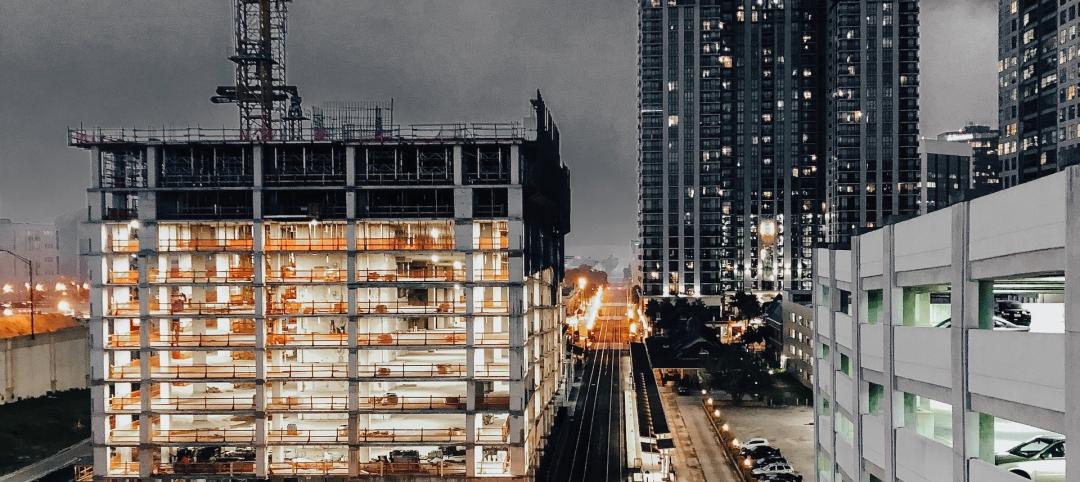Oregon’s new commercial building code will create an energy efficiency increase in commercial buildings estimated at more than 14% from the previous code.
The 2019 Oregon Zero Energy Ready Commercial Code went into effect Oct. 1, 2019, and is now in a three-month transition period until January 1, 2020 when it will be fully enforced on new projects. The new code is based on ASHRAE 90.1-2016. The previous code was based on the IECC 2009.
Among the new requirements:
· Manual lighting controls are now required for all spaces and the area of control is increased to 2,500 sf. In larger spaces, the new code allows a manual switch to control an area up to 10,000 sf.
· The occupancy sensor shut-off time delay is reduced from 30 minutes to 20 minutes for added energy savings.
· The list of spaces requiring occupancy sensors is expanded to now include corridors, lobbies, library stacks, lecture halls, multipurpose rooms, stairwells, and warehouses.
· A new requirement called “Automatic partial-off”, reduces lighting power by at least 50% when there is no occupancy in corridors, lobbies, library stacks, classroom laboratories, stairwells, warehouses, and large storage rooms.
· A secondary sidelight daylighting control zone is added adjacent to the primary sidelight zone.
· A new parking garage lighting provision is added requiring lighting shut-off, 30% light power reduction when there is no activity, vehicle entrance and exit lighting controls, and daylighting controls.
Related Stories
Energy Efficiency | Apr 7, 2023
Department of Energy makes $1 billion available for states, local governments to upgrade building codes
The U.S. Department of Energy is offering funding to help state and local governments upgrade their building codes to boost energy efficiency. The funding will support improved building codes that reduce carbon emissions and improve energy efficiency, according to DOE.
Resiliency | Apr 4, 2023
New bill would limit housing sprawl in fire- and flood-prone areas of California
A new bill in the California Assembly would limit housing sprawl in fire- and flood-prone areas across the state. For the last several decades, new housing has spread to more remote areas of the Golden State.
Sustainability | Apr 4, 2023
ASHRAE releases Building Performance Standards Guide
Building Performance Standards (BPS): A Technical Resource Guide was created to provide a technical basis for policymakers, building owners, practitioners and other stakeholders interested in developing and implementing a BPS policy. The publication is the first in a series of seven guidebooks by ASHRAE on building decarbonization.
Multifamily Housing | Mar 24, 2023
Washington state House passes bill banning single-family zoning
The Washington state House of Representatives recently passed a bill that would legalize duplexes or fourplexes in almost every neighborhood of every city in the state.
Multifamily Housing | Mar 24, 2023
Momentum building for green retrofits in New York City co-ops, condos
Many New York City co-op and condo boards had been resistant to the idea of approving green retrofits and energy-efficiency upgrades, but that reluctance might be in retreat.
Legislation | Mar 24, 2023
New York lawmakers set sights on unsafe lithium-ion batteries used in electric bikes and scooters
Lawmakers in New York City and statewide have moved to quell the growing number of fires caused by lithium-ion batteries used in electric bikes and scooters.
Codes and Standards | Mar 24, 2023
Changes to ICC building codes development process aimed at more in-depth vetting of proposals
The changes will take effect in 2024-2026 for the development of the 2027 International Codes (I-Codes). They will move the development process to an integrated and continuous three-year cycle.
Multifamily Housing | Mar 24, 2023
Multifamily developers offering new car-free projects in car-centric cities
Cities in the South and Southwest have eased zoning rules with parking space mandates in recent years to allow developers to build new housing with less parking.
Multifamily Housing | Mar 24, 2023
Coastal multifamily developers, owners expect huge jump in insurance costs
In Texas and Florida, where Hurricane Ian caused $50 billion in damage last year, insurance costs are nearly 50% higher than in 2022.
Geothermal Technology | Mar 22, 2023
Lendlease secures grants for New York’s largest geothermal residential building
Lendlease and joint venture partner Aware Super, one of Australia’s largest superannuation funds, have acquired $4 million in support from the New York State Energy Research and Development Authority to build a geoexchange system at 1 Java Street in Brooklyn. Once completed, the all-electric property will be the largest residential project in New York State to use a geothermal heat exchange system.

















